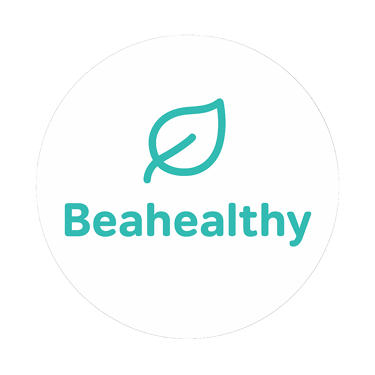Is Your Plate Playing Tricks? The Surprising Truth About Diet Affecting Hearing
Uncover how your diet affecting hearing might be silently impacting your ear health. Learn simple dietary changes to protect your precious sense. Discover the secrets!
7/16/20255 min read


Your Ears, Your Plate: An Unseen Connection
Imagine a world where the rustle of leaves, the melody of your favorite song, or the laughter of a loved one slowly fades. It's a daunting thought, isn't it? We often talk about healthy eating for our hearts, our waistlines, or even our skin. But have you ever considered the silent, yet profound, impact your daily meals might have on something as vital as your hearing? It’s true: your diet affecting hearing is a connection scientists are increasingly exploring, revealing how the fuel you provide your body can either protect or imperil your precious sense of sound.
For years, we've focused on external factors like loud noises or genetics when discussing hearing loss. While these are undeniably crucial, a growing body of research suggests that what's on your dinner plate plays a significant role too. Think of your ears as incredibly intricate, delicate machinery. Just like a high-performance engine needs the right kind of fuel and maintenance, your auditory system thrives on specific nutrients and suffers from detrimental ones. Ready to discover how your food choices could be whispering secrets to your ears?
The Intricate Link: How Your Diet Whispers to Your Ears
It might seem indirect, but the path from your stomach to your inner ear is surprisingly well-travelled. The mechanisms through which your diet affecting hearing operates are multifaceted, primarily revolving around blood flow, inflammation, and oxidative stress.
The Vascular Connection
Your inner ear, particularly the cochlea, is a marvel of biological engineering, packed with tiny hair cells that convert sound vibrations into electrical signals for your brain. These delicate cells are incredibly sensitive to changes in blood flow. Just like a garden needs a steady supply of water, your cochlea needs a constant, robust supply of oxygen and nutrients delivered via healthy blood vessels. Conditions like atherosclerosis (hardening of the arteries), often linked to diets high in saturated fats and cholesterol, can restrict this flow, effectively starving your ear of what it needs. A study published in the Journal of the American Geriatrics Society highlighted a strong correlation between cardiovascular disease risk factors and hearing impairment.
Inflammation and Oxidative Stress: The Silent Saboteurs
Another major culprit in the decline of hearing health is chronic inflammation and oxidative stress. Think of oxidative stress as tiny, invisible rust particles slowly corroding the delicate structures within your ear. This 'rust' is caused by free radicals, unstable molecules that damage cells. While some free radicals are natural byproducts of metabolism, diets rich in processed foods, refined sugars, and unhealthy fats can dramatically increase their production, overwhelming your body's natural defense systems. Chronic inflammation, often fueled by the same dietary culprits, further exacerbates this damage.
"What we eat literally feeds our cells, including those incredibly sensitive hair cells in our inner ear. A diet that promotes inflammation and impairs blood flow is a direct assault on our auditory health."
The Good Guys: Nutrients That Champion Hearing Health
So, what should you invite to your plate to support your hearing health nutrition? Certain vitamins, minerals, and compounds act as powerful allies, protecting your ears from damage and supporting their optimal function.
Antioxidants: Your Ear's Bodyguards
These are the superheroes that fight off those damaging free radicals. Vitamins A, C, and E are potent antioxidants. Think colorful fruits and vegetables: berries, spinach, kale, citrus fruits, and nuts. Zinc, found in nuts, beans, and lean meats, also plays a crucial role in immune function and protecting against oxidative damage in the inner ear.
Magnesium and Potassium: The Electrical Conductors
Magnesium, abundant in leafy greens, bananas, and dark chocolate, is vital for nerve function and blood flow, both critical for hearing. Potassium, found in potatoes, spinach, and avocados, is essential for the fluid balance in the inner ear, which is key for sound processing.
Omega-3 Fatty Acids: The Inflammation Fighters
Found in fatty fish like salmon, mackerel, and walnuts, Omega-3s are renowned for their anti-inflammatory properties. They help maintain healthy blood vessels and can reduce the inflammatory response that may contribute to hearing loss.
B Vitamins: The Neural Network Supporters
Folate (Vitamin B9) and Vitamin B12 are particularly important. Folate, found in legumes and leafy greens, is linked to better blood flow and can reduce homocysteine levels, an amino acid associated with hearing loss. Vitamin B12, primarily found in animal products, is crucial for nerve health. Deficiencies have been linked to tinnitus and hearing impairment.
The Bad Actors: Foods That Could Be Harming Your Ears
Just as some foods for ear health are beneficial, others can actively work against it. Understanding these 'bad actors' is crucial for protecting your hearing.
High Sugar and Processed Foods
Excessive sugar intake can lead to insulin resistance and type 2 diabetes, both of which are strongly linked to hearing loss. High blood sugar damages blood vessels throughout the body, including those delicate ones in your inner ear. Processed foods, often laden with sugar, unhealthy fats, and sodium, contribute to inflammation and oxidative stress, directly impacting auditory health.
Excessive Sodium
While essential in moderation, too much sodium can lead to fluid retention and high blood pressure, both of which can negatively affect the sensitive fluid balance in the inner ear and compromise blood flow.
Saturated and Trans Fats
These fats, commonly found in fried foods, red meat, and many processed snacks, contribute to arterial plaque buildup, restricting blood flow to the ear and increasing inflammation. If your ears could talk, they'd beg you to choose healthy fats like those from avocados and olive oil instead!
Practical Tips: Your Action Plan for Better Hearing Health
Ready to give your ears the nutritional support they deserve? Here’s your actionable roadmap:
Embrace a Mediterranean-Style Diet: Focus on whole grains, lean proteins, abundant fruits and vegetables, nuts, seeds, and healthy fats like olive oil. This diet is naturally rich in antioxidants and anti-inflammatory compounds.
Prioritize Omega-3s: Aim for at least two servings of fatty fish per week, or consider a high-quality Omega-3 supplement if fish isn't your thing.
Load Up on Antioxidants: Make every meal colorful! Think berries, leafy greens, bell peppers, and carrots. These are your ear's best defense.
Limit Processed Foods and Sugary Drinks: Cut back on sodas, candies, fast food, and anything with a long list of unpronounceable ingredients. Your blood vessels (and ears!) will thank you.
Stay Hydrated: Water is essential for maintaining fluid balance throughout your body, including your inner ear. Drink plenty of it.
Control Blood Pressure and Blood Sugar: Work with your doctor to manage these conditions, as they have direct implications for your auditory health.
A Product We Trust
While a healthy diet lays the foundation, sometimes our bodies need a little extra support, especially when it comes to the intricate mechanisms of hearing. Based on the scientific principles we've discussed – supporting circulation, reducing inflammation, and providing essential nutrients – a targeted supplement can be a powerful complement to your dietary efforts. For those looking to give their auditory system comprehensive support, we highly recommend you check out Quietum Plus. It's formulated with ingredients designed to support overall ear health and function, aligning perfectly with the nutritional needs we’ve explored.
The Takeaway: Listen to Your Body, And Your Ears Will Thank You
It's clear that the food choices we make ripple throughout our entire body, extending even to the intricate world of our hearing. By consciously choosing nutrient-rich, whole foods and limiting those that promote inflammation and vascular damage, you're not just eating well for your general health; you're actively investing in the longevity and clarity of your hearing. So, the next time you sit down for a meal, remember: every bite is an opportunity to nourish your ears and preserve the precious symphony of life around you. Your hearing is a gift – let's protect it, one mindful meal at a time.
Health and Wellness
Your trusted source for health and fitness.
Connect
contact: beahealth.it@gmail.com
© 2025. All rights reserved.
